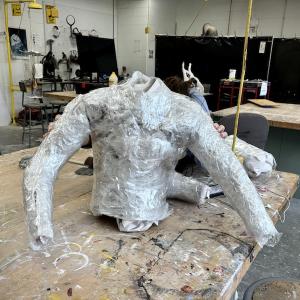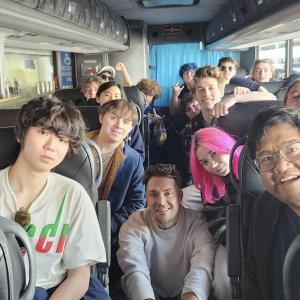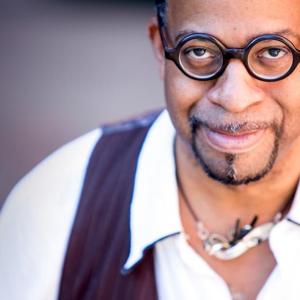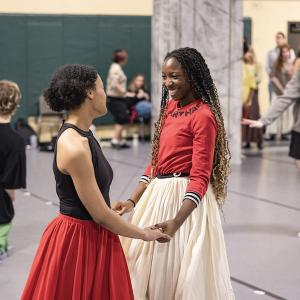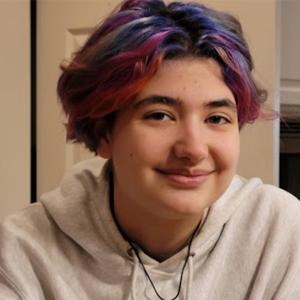Applications are still open for Arts Camp and Arts Academy. Programs fill quickly—submit your app today!
2020 Fall Letter to Academy Students
It remains the artist’s responsibility to give voice to the human condition. I see a world right now that is disoriented and in search of meaning—a world in desperate need of the artist’s perspective.
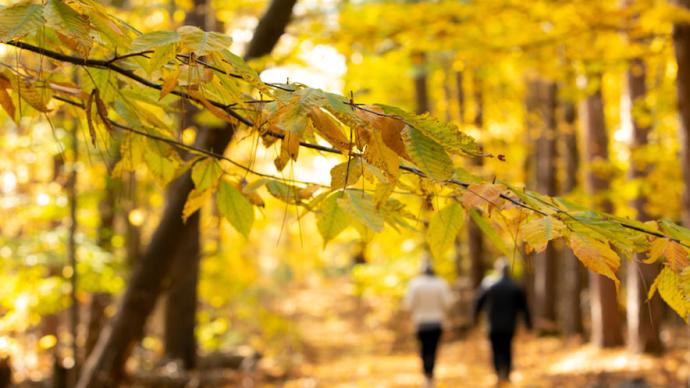
Dear Academy Students:
Over these recent months, days have blurred together, and time has taken on a different meaning for me. Most of the time, I’ve found myself consumed with the question of “what needs to be done right now?” As you make last minute preparations to return to campus and double-check your packing list, perhaps you can relate.
But as we find our way through this extraordinary moment in our history, I’d encourage us to ask ourselves the larger questions like “what is the role of an artist in society?”
In 1918, it is estimated that 15 to 22 million lives were lost in World War I and approximately 50 million people worldwide died of the Spanish Flu. In 1919, as American soldiers returned from war, racial tensions intensified, white-on-black violence spiked, and violent riots erupted throughout the nation in what is now referred to as the “Red Summer.”
Sound familiar?
Artists of that generation gave meaning to the moment. That era gave rise to or accelerated the Harlem Renaissance, the Dada movement, Surrealism, and modern architecture as artists embraced a sense of irrationalism and the unconscious. Artists’ frustrations compelled them to reconsider familiar concepts and mediums as they looked to humanize a world full of illness, death, inequality, and hopelessness.
Like today, people quarantined and wore masks. Theatres closed and performances were cancelled. But musicians still composed music, and authors still wrote books, many of which were inspired by war, racial inequities, and the pandemic. Willa Cather penned One of Ours after losing her cousin to the war. Claude McKay wrote his searing poem “If We Must Die” in the heat of the “Red Summer.” Edvard Munch used his own battle with the flu to paint before and after “Spanish Influenza” self-portraits. Igor Stravinsky composed L’Histoire du Soldat with its “Grand Chorale” (text below) to convey the compromises forced upon us in troubling times.
One hundred years later, doctors and scientists know more about the virus that we are currently fighting than their early 20th-century counterparts. We now have testing, antibiotics, and ventilators. The technology and tools to create and communicate appear limitless from Netflix and Amazon to TikTok and, yes, Zoom.
Yet in spite of these profound advances, it remains the artist’s responsibility to give voice to the human condition. Artists -- through inspiration, revelation, and provocation -- compel us into that space between who we are now and who we aspire to be. I see a world right now that is disoriented and in search of meaning -- a world in desperate need of the artist’s perspective.
One hundred years ago, when the war ended and the flu died out, people were bursting with excitement to get back to theatres, concert halls, and galleries. Today, it is your voice we await. As you pack that last pair of socks, ask yourself the larger questions. Draw upon the deep resources at Interlochen in the weeks to come to become the creative changemakers our world needs in the years to come. Bend the arc of history in our favor.
It is an honor to walk this path with you. We miss your creative spirit and can’t wait to have you on campus!
Sincerely,
Trey Devey
“Grand Chorale” (translated) from Igor Stravinsky’s L’Histoire du Soldat
You must not seek to add
To what you have, what you once had;
You have no right to share
What you are with what you were.
No one can have it all,
That is forbidden.
You must learn to choose between.
One happy thing is every happy thing:
Two, is as if they had never been.
Source: Liner notes of Chandos 1993 recording, Royal Scottish National Orchestra, Neemi Jarvi, conductor
